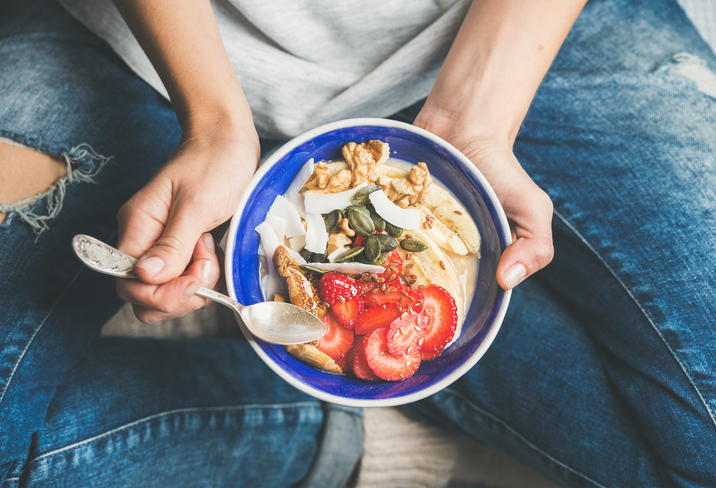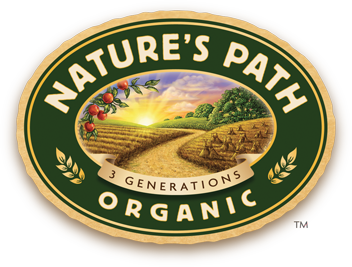Some people can’t leave the home without it, others would rather have an extra five minutes in bed, or some parents make do with a cup of tea or coffee as they focus on getting their kids ready for school. But how important is breakfast and what contribution does eating breakfast make to your health and well-being? Registered Nutritionist and Dietitian Helen Gardiner explains…

Article by Registered Nutritionist and Dietitian Helen Gardiner for Nature’s Path.
While breakfast is often quoted as ‘the most important meal of the day’, this may not be strictly true. Your daily food intake should be considered as a whole and one meal on its own shouldn’t be thought of as more important than another. But skipping meals, whether it be breakfast, lunch or dinner, is not advised as it can have an impact on your nutritional intake over the rest of the day.
Research has shown that people who eat breakfast have more balanced diets than those who skip it, are less likely to be overweight, lose weight more successfully if overweight, and have reduced risk of certain diseases such as cardiovascular disease and diabetes.
Breakfast can provide energy for the day’s activities and a range of essential nutrients such as protein, fibre, vitamins and minerals such as iron and calcium. It can also stave off mid-morning hunger pangs and prevent you from snacking on foods that are high in fat and/or sugar, the consumption of which can have a detrimental effect on body weight. Eating breakfast may also help to improve mental performance, concentration and mood – three more good reasons to eat something in the morning.
Breakfast should provide about 20-25% of your daily nutritional requirements, and it’s not just about having any old breakfast – it’s about having a healthy breakfast. If time is short in the mornings, planning your breakfast ahead and making sure you have some easy-to-prepare healthy foods available can really help.

When looking at your best breakfast options, remember to include at least three of the four main food groups on a regular basis: starchy foods, fruit and vegetables, milk and dairy foods, and meat, fish, eggs and non-dairy sources of protein.
A quick and easy option whether you eat it before you leave the house or at your desk is a breakfast cereal with semi-skimmed milk, porridge or cereal topped with natural yogurt, together with some sliced banana, dried or stewed fruits. Alternatively you could try some wholegrain toast with peanut butter, banana or hard-boiled egg. If you have a bit more time, you could do your eggs differently, maybe poached or scrambled, or have some mushrooms, baked beans or tomatoes with your toast.
Keep pastries and croissants as an occasional treat rather than for every day, as they can be high in fat and sugar and low in vitamins and minerals.
And don’t forget to include a drink, as being well hydrated will help you to concentrate throughout the day. Water, milk, tea and coffee all supply vital fluids, and a small glass (150ml) of pure fruit juice or fruit smoothie can count towards your ‘5-a-day’.
Looking for a delicious breakfast to start the day? Why not try this Nice & Nobbly fruit and yoghurt parfait or a refreshing fruit smoothie.

